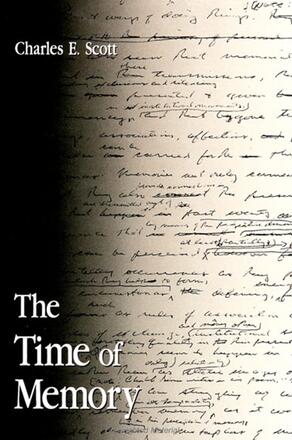
The Time of Memory
Alternative formats available from:
Explores the mythology of memory, involuntary memory, and the relation between time and memory in the context of questions prominent in contemporary thought.
Description
The Time of Memory places emphasis on nonvoluntary memory and the mythology of memory in the context of questions that are prominent in contemporary thought. How do memories form experiences of origin and identity? How might we describe the functions of memory in thought or knowledge? Are there memories without images? How do past times become present? The book also addresses the force of mutation in the formation of memories as well as the roles of memories in experiences of ecstasy, sublimity, continuity, and discontinuity. The book engages Aristotle, Nietzsche, Foucault, Derrida, and Heidegger, as well as such mythological figures as Mnemosyne, Lethe, Dionysus, and Apollo.
Charles E. Scott is the Edwin Erle Sparks Professor of Philosophy at The Pennsylvania State University, University Park. He is the author of several books, including Boundaries in Mind, and two that have been awarded "Choice Book of the Year": The Question of Ethics, and On the Advantages and Disadvantages of Ethics and Politics. He is also the coeditor of several volumes published by SUNY Press, including most recently Ethics and Danger: Essays on Heidegger and Continental Thought.
Reviews
"The Time of Memory is a tour de force in its comprehensive treatment of the subject of memory. It traverses the landscape of philosophical and psychoanalytical treatments of memory—offering adept and accessible accounts of Jungian notions of mythical memory, Nietzschean notions of genealogical memory, phenomenological and hermeneutical accounts of fused and ecstatic memory, and recent studies of archeological and transformational memory in poststructuralism and postmodern philosophy.
"This work is thoroughly scholarly in its rigorous attentiveness to the matter under investigation, but Scott does not approach the problem of memory from an abstract, merely epistemological point of view. His study of memory is itself a memorial, a performance of the various kinds of re-membering he discusses. It is written with extraordinary grace and fluency and is rich with concrete references that elucidate the difficult points. Readers will appreciate that finally we have a treatise on memory that is full of memories." — Walter A. Brogan, Villanova University